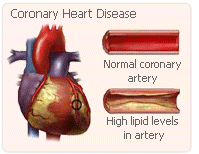
This article serves to review another article written by Weintraub and colleagues which said the when monitoring postmenopausal women that were receiving estrogen replacement therapy for hypercholesterolemia that their lipid levels also needed to be considered. Weintraub says the estrogen replacement therapy can reduce the incidence of coronary artery disease by fifty percent. The writers of this article disagree with this statement as medical information has recently been updated. New scientific evidence has surfaced about the role of estrogen in the treatment of heart disease. The Heart and Estrogen and Progestin Replacement Study published information showing that estrogen replacement therapy did not decrease the number of coronary heart disease issues in a great number of postmenopausal woman who were followed for four years. On the contrary, estrogen replacement therapy actually increased the mortality rate in accordance to coronary heart disease.

The authors of the Heart and Estrogen and Progestin Replacement Study claimed that the “lack of an overall effect occurred despite a net 11% lower low-density lipoprotein cholesterol level and 10% higher high-density lipoprotein cholesterol level in the hormone group compared with the placebo group.” Because of this, the effectiveness of estrogen replacement therapy is being seriously questioned in the management of coronary artery disease. For a postmenopausal woman using estrogen replacement therapy for coronary heart disease, it is advised she ask her doctor to stay abreast of the most current information on its efficacy.